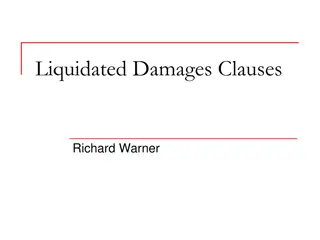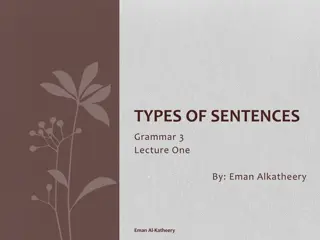
Understanding Agreement Clauses Before Rock v. MWB [2018] UKSC 24
Explore the historical position regarding agreement clauses prior to the Rock v. MWB case, where parties were traditionally able to dispense with such clauses. Various legal principles and cases are discussed, shedding light on the freedom of parties to modify contracts and the implications of agreement clauses.
Download Presentation

Please find below an Image/Link to download the presentation.
The content on the website is provided AS IS for your information and personal use only. It may not be sold, licensed, or shared on other websites without obtaining consent from the author. If you encounter any issues during the download, it is possible that the publisher has removed the file from their server.
You are allowed to download the files provided on this website for personal or commercial use, subject to the condition that they are used lawfully. All files are the property of their respective owners.
The content on the website is provided AS IS for your information and personal use only. It may not be sold, licensed, or shared on other websites without obtaining consent from the author.
E N D
Presentation Transcript
What was the position with agreement clauses before Rock v MWB [2018] UKSC 24 at [1] and [14] per Lord Sumption? Michael Trim Wednesday 7 August 2019 Liability limited by a Scheme approved under professional standards legislation
>> So what was the position before MWB? Historically the position has been that despite such a clause, the parties were free to agree to dispense with it. Cardozo J in Beatty v Guggenheim Exploration Co (1919) 225 NY 380, 387-388: Those who make a contract, may unmake it. The clause which forbids a change may be changed like any other. The prohibition of oral waiver, may itself be waived
>>So what was the position before MWB? (2) This is, of course, different to a scenario where writing is required by statute or the like (see GEC Marconi Systems Pty Ltd v BHP Information Technology Pty Ltd (2003) 128 FLR 1 at [216]). What we are talking about here is where the parties self-impose a requirement that no oral statements or conduct is binding either before or after the document is signed.
>>So what was the position before MWB? (3) This was and is arguably the position in Australia. Start with Liebe v Molloy (1906) 4 CLR 347 at 353-4: but that [an entire agreement clause] does not exclude altogether the implied doctrine of law that, when one man does work for another at. his request, an implied obligation arises to pay the fair value of it
>>So what was the position before MWB? (4) Then Commonwealth v Crothall Hospital Services (Aust) Ltd (1981) 54 FLR 439 at 447ff. Before considering the effect of the evidence it may be helpful to set out some long-established principles of the common law. It is open to the parties to a written contract to vary it.This maybe done in writing or, except where the contract is required by law to be evidenced in writing, by oral agreement.The agreement to vary may be express or implied from conduct
>>So what was the position before MWB? (5) Commonwealth v Crothall Hospital Services (Aust) Ltd (1981) 54 FLR 439 at 454. the Commonwealth says that in the present case many payments were not authorized by the original contract and that they are therefore recoverable. This submission would, I think, have considerable weight were it not for the fact that subsequent to the original contract the parties in my view agreed to vary the original contract by varying the contract price payable thereunder from time to time and in the manner I have already analysed
>>So what was the position before MWB? (6) GEC Marconi Systems Pty Ltd v BHP Information Technology Pty Ltd (2003) 128 FLR 1 at 61. The conclusions to be drawn from the cases in this category are that (i) notwithstanding the writing requirement, it is open to the parties by express oral agreement or by contract implied from conduct to impose further or different rights and obligations on each other from those contained in the original contract
>>So what was the position before MWB? (7) And finally, Alstom Ltd v Yokogawa Australia Pty Ltd (No 7) [2012] SASC 49 at [1519]: Article 2.2.1 is a typical entire agreement clause designed to exclude any previous agreements and representations. Article 2.2.2 is permissive as to one method of variation. It is not mandatory and does not provide that the contract may only be amended by written agreement of the parties. In any event, there is nothing to prevent a written contract from being varied by subsequent oral agreement. Even a contract under seal may be modified or discharged by oral agreement. If the contract provided that it could only be amended in writing, such a stipulation would also be ineffective.
>>So what was the position before MWB? (8) What about cases on notice provisions in construction contracts? What about cases on pre-requisites for variations to the scope of works?
Michael Trim T +61 7 3008 3920 E MICHAEL.TRIM@QLDBAR.ASN.AU level27chambers.com.au

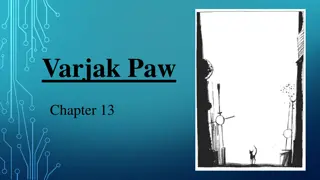
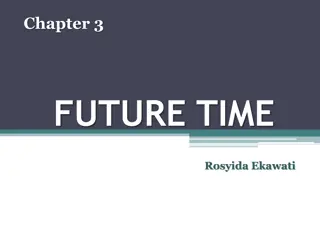
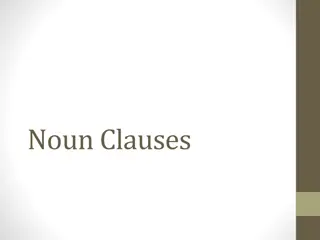
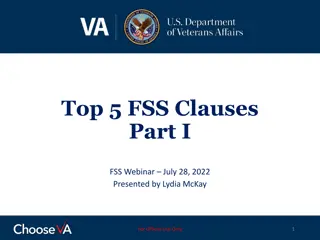
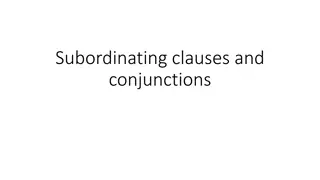
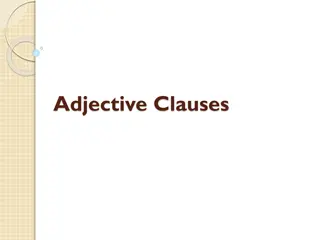
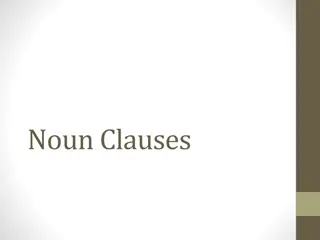

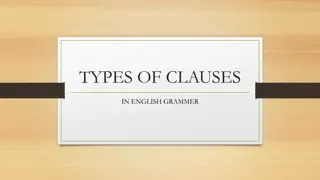
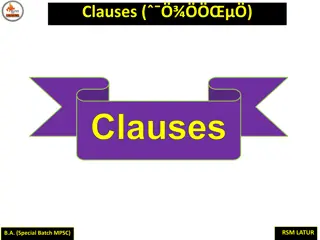
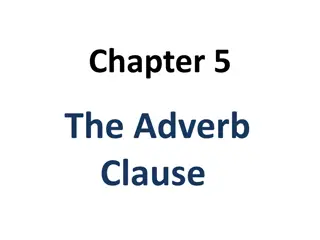
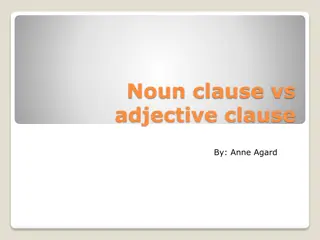
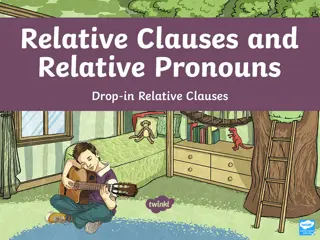

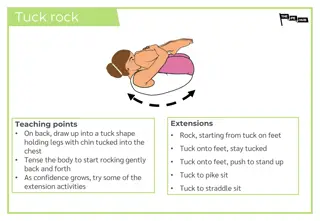



![Legal Dispute Analysis: FCA v ARCH and Others [2021] UKSC 1](/thumb/189783/legal-dispute-analysis-fca-v-arch-and-others-2021-uksc-1.jpg)
![Importance of Rock v. MWB [2018] UKSC 24 as Explained by Lord Sumption](/thumb/193348/importance-of-rock-v-mwb-2018-uksc-24-as-explained-by-lord-sumption.jpg)
